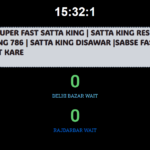In today’s dynamic business environment, organizations constantly reassess their strategic direction to remain competitive and agile. One of the key strategic maneuvers companies undertake is divestiture — the process of selling, liquidating, or spinning off a business unit, subsidiary, or asset. While divestitures can unlock shareholder value, streamline operations, and sharpen strategic focus, they also pose significant regulatory and compliance challenges. For companies operating in complex regulatory landscapes like the Kingdom of Saudi Arabia (KSA), having a well-defined regulatory compliance roadmap is not just advisable — it is essential for success.
The Complexity of Compliance in KSA
Saudi Arabia is undergoing a profound transformation under Vision 2030, with initiatives aimed at diversifying the economy, enhancing private sector participation, and fostering investment. As part of this transformation, regulatory authorities such as the Capital Market Authority (CMA), Saudi Arabian General Investment Authority (SAGIA) (now part of the Ministry of Investment), and General Authority for Competition (GAC) have become more proactive in overseeing mergers, acquisitions, and divestitures.
In this evolving landscape, divestiture consultants play a pivotal role in guiding companies through regulatory frameworks while ensuring that their transactions remain compliant, timely, and strategically aligned. Their expertise becomes indispensable when navigating the intricate licensing, competition laws, taxation, and labor regulations involved in the divestiture process.
Strategic Planning: Laying the Compliance Groundwork
The regulatory compliance roadmap begins long before a divestiture deal is announced. Strategic planning must incorporate an early assessment of potential legal and regulatory hurdles. Organizations should start by conducting a Regulatory Due Diligence that includes:
- Licensing Requirements: Evaluating whether licenses and permits related to the business unit being divested are transferrable or require reissuance.
- Regulatory Filings: Identifying the local and regional authorities that need to be notified and determining the documentation and timeline required.
- Foreign Ownership Regulations: Understanding limitations for foreign buyers, especially in sectors such as defense, telecom, and real estate.
Companies operating in KSA must also take into account Shariah-compliant investment structures when dealing with international or regional buyers. Compliance with Islamic finance principles may require restructuring of certain contractual terms or assets, and experienced divestiture consultants are often brought in to bridge these complex legal and cultural considerations.
Step-by-Step Compliance Roadmap
A successful divestiture in the KSA market requires a phased, structured approach to regulatory compliance. Below is a recommended step-by-step roadmap tailored for the Saudi business environment:
1. Pre-Divestiture Assessment
Before initiating the divestiture process, businesses should:
- Perform a legal audit to identify existing contracts, liabilities, and regulatory obligations.
- Assess the tax implications of the divestiture and consult with the Zakat, Tax and Customs Authority (ZATCA) for pre-clearance, if possible.
- Determine the data residency and privacy concerns, particularly if customer or employee data is involved, in accordance with KSA’s Personal Data Protection Law (PDPL).
2. Engage Regulatory Authorities Early
Early and proactive communication with regulatory authorities helps prevent surprises down the line. Companies should:
- Submit initial notifications to the General Authority for Competition (GAC) if the deal meets economic concentration thresholds.
- Engage with sector-specific regulators (e.g., Saudi Central Bank, Communications and Information Technology Commission) if the divested business operates in a regulated industry.
- Clarify potential requirements for workforce transition approvals or nationalization quotas (Nitaqat compliance).
3. Structuring the Deal
Legal and financial structuring is critical from both a compliance and value realization perspective. Factors to consider include:
- Asset Sale vs. Share Sale: Each has different tax and regulatory implications.
- Spin-off Strategy: Requires CMA and Tadawul approvals if a publicly listed company is involved.
- IP and Brand Rights: Determine if intellectual property must be licensed, reassigned, or localized under KSA rules.
This is where divestiture consultants add significant value — by ensuring that the structure not only supports business goals but also remains within the parameters of applicable laws and regulations. They also help mitigate cross-border regulatory conflicts if the parent or buyer is international.
4. Transaction Execution & Closing
As the transaction approaches closing, focus shifts to:
- Transfer of Permits and Contracts: Coordinating with ministries and municipalities to reissue licenses or obtain new commercial registrations.
- Employment Law Compliance: Ensuring the seamless transfer of employees under Saudi labor laws, honoring end-of-service benefits, and managing expatriate sponsorship transitions.
- Tax Clearance: Securing ZATCA clearance for VAT, zakat, and income tax obligations related to the divested entity.
It is advisable to create a compliance checklist to monitor critical milestones and ensure that all legal and regulatory boxes are checked before the closing date.
5. Post-Divestiture Compliance
The end of the transaction does not signify the end of compliance obligations. Post-divestiture responsibilities include:
- Finalizing the winding up of the divested unit (if applicable) under the Saudi Companies Law.
- Ongoing reporting or regulatory commitments that may persist for a defined period post-transaction.
- Monitoring for any changes in legislation that may retroactively impact the transaction.
Additionally, parties should perform a post-mortem compliance review to evaluate whether all statutory and contractual obligations were met — a practice that minimizes future legal risks.
Challenges Unique to the KSA Market
While divestitures anywhere involve a fair amount of regulatory complexity, the Saudi Arabian market presents unique challenges that must be factored into the roadmap:
- Evolving Regulatory Environment: With continuous updates to company law, investment rules, and labor policy, staying current is a full-time task.
- Localization Requirements: Regulations such as Saudization create constraints on divesting units with a largely expatriate workforce.
- Cultural Considerations: Trust-based business customs and family-owned enterprises often necessitate non-standard structuring of deals.
Organizations that are unfamiliar with these nuances benefit immensely from the local expertise of divestiture consultants, who offer not only regulatory guidance but also insight into stakeholder management and risk mitigation strategies.
Building an Internal Compliance Framework
For organizations planning multiple divestitures or operating across diverse sectors, it is beneficial to build an internal divestiture compliance framework, which may include:
- A central repository for regulatory documents and templates
- A governance model involving legal, tax, finance, and operations stakeholders
- Training modules for internal teams to understand divestiture best practices
Embedding compliance as a core component of the divestiture strategy ensures not only legal certainty but also enhances the company’s reputation among regulators and investors alike.
Divestitures can be a powerful tool for organizations looking to refocus on core operations, raise capital, or optimize their portfolios. However, success in these transactions, particularly in the Kingdom of Saudi Arabia, is closely tied to the ability to manage regulatory compliance effectively.
By following a clear and comprehensive compliance roadmap — from initial planning to post-transaction obligations — and by leveraging the expertise of seasoned divestiture consultants, companies can reduce risk, increase transaction speed, and deliver optimal value to stakeholders. As KSA continues to emerge as a regional and global investment hub, those who master the regulatory landscape will stand out as leaders in strategic transformation.












